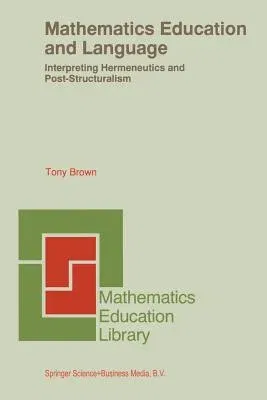Tony Brown
(Author)Mathematics Education and Language: Interpreting Hermeneutics and Post-Structuralism (Softcover Reprint of the Original 1st 1997)Paperback - Softcover Reprint of the Original 1st 1997, 23 August 2014

Qty
1
Turbo
Ships in 2 - 3 days
In Stock
Free Delivery
Cash on Delivery
15 Days
Free Returns
Secure Checkout
Part of Series
Mathematics Education Library
Print Length
270 pages
Language
English
Publisher
Springer
Date Published
23 Aug 2014
ISBN-10
9401738009
ISBN-13
9789401738002
Description
Product Details
Author:
Book Edition:
Softcover Reprint of the Original 1st 1997
Book Format:
Paperback
Country of Origin:
NL
Date Published:
23 August 2014
Dimensions:
23.39 x
15.6 x
1.52 cm
ISBN-10:
9401738009
ISBN-13:
9789401738002
Language:
English
Location:
Dordrecht
Pages:
270
Publisher:
Weight:
399.16 gm

